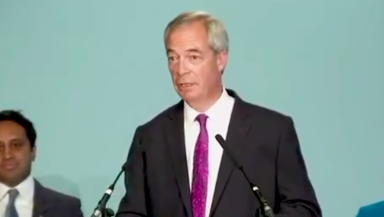
Nigel Farage has spoken in favour of a slight tightening of abortion law and has also proposed a number of policies aimed at reversing Britain’s declining birth rate.
The Reform UK leader called for the removal of the two-child benefit cap and also proposed tax incentives for married couples.
The policies are aimed at reducing the financial barriers to getting married and starting a family.
Research has suggested that the cost of a wedding and the current incentives of the benefits system act as strong disincentives to get married, especially among poorer members of the population.
This in turn leads to higher levels of family breakdown, with one paper recently suggesting that nearly half of British children are living without both of their biological parents. Failure to get married, rather than divorce, was found to be the main factor in such breakdowns.
Farage has said that Britain’s falling birth rate represents an “existential crisis”, echoing comments by tech billionaire Elon Musk.
In addition to a transferable tax allowance of up to £25,000 for married couples, Farage also suggested increasing the personal income tax threshold from £12,570 to £20,000, again aiming to keep more money in the pockets of the average person.
Estimates suggest that such plans could cost the government up to £83.5 billion per year, although the real figure could be substantially less. Farage suggested paying for the cuts by ending net-zero policies, reducing spending on asylum seekers, and the elimination of government waste.
Farage, who has been divorced twice, conceded his own shortcomings, but still maintained the position that marriage is beneficial for providing stability and a future for children.
“I’m not moralising — my own track record isn’t so good on this,” Farage said, adding that “making marriage a little bit more important" could significantly improve the lives of children.
On abortion, Farage said that he was supportive of the right to abortion, but claimed the current limit of 24 weeks is “utterly ludicrous” given the increasing chances of survival among premature babies born at 22 weeks.













